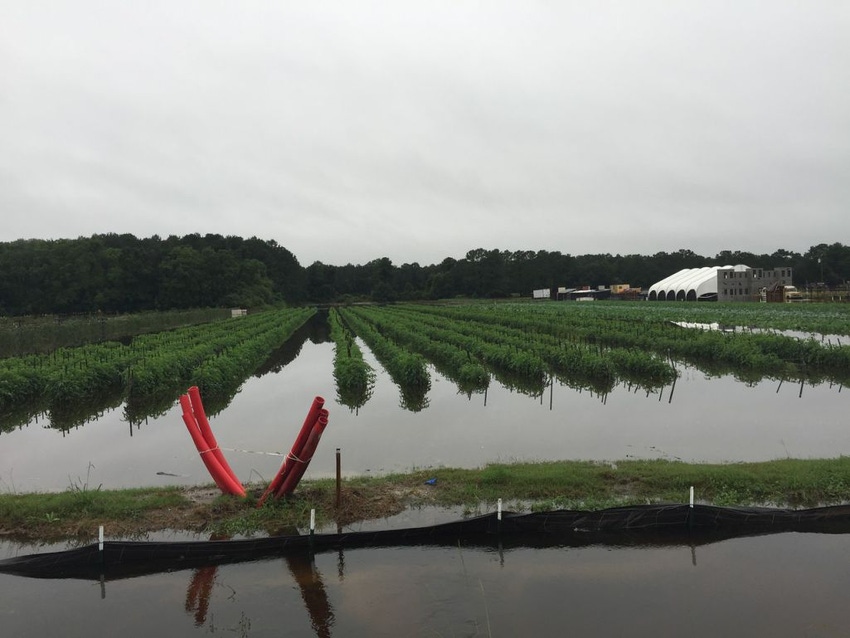December 17, 2015

Clemson University has released a documentary, interactive timeline and web page chronicling this year’s historic flood and the hardship facing South Carolina’s No. 1 industry: agriculture and forestry.
“About 2 o’clock Sunday morning my wife woke up and she said, ‘Harry, it’s white-capping in the backyard.’ I didn’t know it at the time, but my digital range gauge was on its way to a grand total of 16 inches of rain in one day,” Clarendon County farmer Harry Durant recounts in “Treading Water,” the new documentary produced by Clemson University.
Durant is one of several South Carolina farmers, Clemson Cooperative Extension agents and agriculture industry experts who speak eloquently in the documentary about the devastating impacts of the October flood.
Rains in early October created waves that will ripple throughout the state’s $41.7 billion agriculture and forestry industries for the foreseeable future.
Clemson Public Service and Agriculture and Cooperative Extension Service released the documentary along with the web page and comprehensive timeline of the year’s one-two punch of drought and flooding to the state’s farmers. The timeline at www.clemson.edu/scflood includes interactive graphics detailing rainfall across the state, media coverage from throughout the country on the October flooding and resources from Clemson University and state and federal agencies.
“Our intention with this website and documentary is that our state understand the hardship these hard-working farm families continue to face. Financial losses will be great. Some businesses may not survive. They need our help. Not only is agriculture and forestry our state’s No. 1 industry, but these are the people who will grow the food put on the tables of homes throughout South Carolina and the nation,” said Thomas Dobbins, director of the Clemson University Cooperative Extension Service.
“The morning after this flood, our Extension agents were in the fields with farmers across the state, often neglecting their own needs following this historic storm, to help growers assess damage and chart a path forward. As the state’s land-grant university, we will be with farmers for every step of recovery going forward.”
Clemson Extension continues to conduct educational workshops throughout the state to help farmers navigate financial decisions following this storm. Extension and Clemson Public Service and Agriculture also will continue to provide unbiased, research-based information to help farmers improve yields in the coming years. Look for upcoming Extension events at www.clemson.edu/extension.
“The floodwaters may have receded, but the impact will continue to be seen as farmers plant next year’s crop,” Dobbins said.
The short documentary includes first-person accounts and expert testimony.
The website, www.clemson.edu/scflood, includes links with information on how South Carolinians can help farmers recover. For farmers, the site includes links to flood resources, crop insurance information, disaster assessment forms and other information that will help them with recovery.
The bottom of the page includes a gallery of images taken at farms throughout the state in the day and weeks following the storm.
You May Also Like




